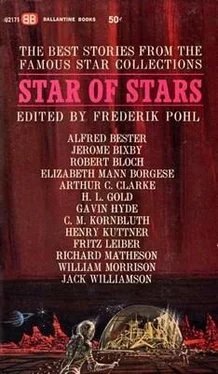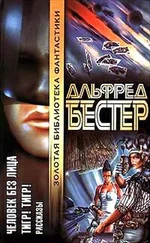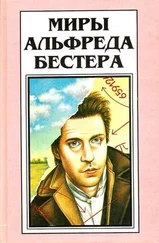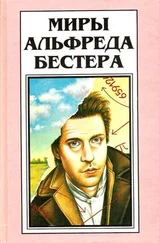Альфред Бестер - Disappearing Act
Здесь есть возможность читать онлайн «Альфред Бестер - Disappearing Act» весь текст электронной книги совершенно бесплатно (целиком полную версию без сокращений). В некоторых случаях можно слушать аудио, скачать через торрент в формате fb2 и присутствует краткое содержание. Год выпуска: 1960, Издательство: Ballantine Books, Жанр: Фантастика и фэнтези, на английском языке. Описание произведения, (предисловие) а так же отзывы посетителей доступны на портале библиотеки ЛибКат.
- Название:Disappearing Act
- Автор:
- Издательство:Ballantine Books
- Жанр:
- Год:1960
- ISBN:нет данных
- Рейтинг книги:5 / 5. Голосов: 1
-
Избранное:Добавить в избранное
- Отзывы:
-
Ваша оценка:
- 100
- 1
- 2
- 3
- 4
- 5
Disappearing Act: краткое содержание, описание и аннотация
Предлагаем к чтению аннотацию, описание, краткое содержание или предисловие (зависит от того, что написал сам автор книги «Disappearing Act»). Если вы не нашли необходимую информацию о книге — напишите в комментариях, мы постараемся отыскать её.
Disappearing Act — читать онлайн бесплатно полную книгу (весь текст) целиком
Ниже представлен текст книги, разбитый по страницам. Система сохранения места последней прочитанной страницы, позволяет с удобством читать онлайн бесплатно книгу «Disappearing Act», без необходимости каждый раз заново искать на чём Вы остановились. Поставьте закладку, и сможете в любой момент перейти на страницу, на которой закончили чтение.
Интервал:
Закладка:
“Never mind that,” Carpenter said. “Where do they go?”
“Do they teleport behind the enemy lines?” someone asked. “There’s those intelligence leaks.”
“I want Intelligence to check,” Carpenter snapped. “Is the enemy having similar difficulties with, say, prisoners of war who appear and disappear from their POW camps? They might be some of ours from Ward T.”
“They might simply be going home,” Colonel Dimmock suggested.
“I want Security to check,” Carpenter ordered. “Cover the home life and associations of every one of those twenty-four disappearers. Now. . . about our operations in Ward T. Colonel Dimmock has a plan.”
“We’ll set up six extra beds in Ward T,” Edsel Dimmock explained. “We’ll send in six experts to live there and observe. Information must be picked up indirectly from the patients. They’re catatonic and nonresponsive when conscious, and incapable of answering questions when drugged.”
“Gentlemen,” Carpenter summed it up. “This is the greatest potential weapon in the history of warfare I don’t have to tell you what it can mean to us to be able to teleport an entire army behind enemy lines. We can win the war for the American Dream in one day if we can win this secret hidden in those shattered minds. We must win!”
The experts hustled, Security checked, Intelligence probed. Six hardened and sharpened tools moved into Ward T in St. Albans Hospital and slowly got acquainted with the disappearing patients who appeared and departed less and less frequently. The tension increased.
Security was able to report that not one case of strange appearance had taken place in America in the past year. Intelligence reported that the enemy did not seem to be having similar difficulties with their own shock cases or with POWs.
Carpenter fretted. “This is all brand new. We’ve got no specialists to handle it. We’ve got to develop new tools.” He snapped up his intercom. “Get me a college,” he said.
They got him Yale.
“I want some experts in mind over matter. Develop them,” Carpenter ordered. Yale at once introduced three graduate courses in Thaumaturgy, Extra Sensory Perception and Telekinesis.
The first break came when one of the Ward T experts requested the assistance of another expert. He wanted a Lapidary.
“What the hell for?” Carpenter wanted to know.
“He picked up a reference to a gem stone,” Colonel
Dimmock explained. “He can’t relate it to anything in his experience. He’s a personnel specialist.”
“And he’s not supposed to,” Carpenter said approvingly. “A job for every man and every man on the job.” He flipped up the intercom. “Get me a Lapidary.”
An expert Lapidary was given leave of absence from the army arsenal and asked to identify a type of diamond called Jim Brady. He could not.
“We’ll try it from another angle,” Carpenter said. He snapped up his intercom. “Get me a Semanticist.”
The Semanticist left his desk in the War Propaganda Department but could make nothing of the words Jim Brady. They were names to him. No more. He suggested a Genealogist.
A Genealogist was given one day’s leave from his post with the Un-American Ancestors Committee but could make nothing of the name of Brady beyond the fact that it had been a common name in America for five hundred years. He suggested an Archaeologist.
An Archaeologist was released from the Cartography Division of Invasion Command and instantly identified the name Diamond Jim Brady. It was a historic personage who had been famous in the city of Little Old New York some time between Governor Peter Stuyvesant and Governor Fiorello La Guardia.
“Christ!” Carpenter marveled. “That’s centuries ago. Where the hell did Nathan Riley get that? You’d better join the experts in Ward T and follow this up.”
The Archaeologist followed it up, checked his references and sent in his report. Carpenter read it and was stunned. He called an emergency meeting of his staff of experts.
“Gentlemen,” he announced, “Ward T is something bigger than teleportation. Those shock patients are doing something far more incredible. . . far more meaningful. Gentlemen, they’re traveling through time.”
The staff rustled uncertainly. Carpenter nodded emphatically.
“Yes, gentlemen. Time travel is here. It has not arrived the way we expected it. . . as a result of expert research by qualified specialists; it has come as a plague. . . an infection. . . a disease of the war. . . a result of combat injury to ordinary men. Before I continue, look through these reports for documentation.”
The staff read the stenciled sheets. PFC Nathan Riley disappearing into the early twentieth century in New York; M/Sgt Lela Machan.. visiting the first century in Rome; Corp/2 George Hanmer. . . journeying into the nineteenth century in England. And all the rest of the twenty-four patients, escaping the turmoil and horrors of modern war in the twenty-second century by fleeing to Venice and the Doges, to Jamaica and the buccaneers, to China and the Han Dynasty, to Norway and Eric the Red, to any place and any time in the world.
“I needn’t point out the colossal significance of this discovery,” General Carpenter pointed out. “Think what it would mean to the war if we could send an army back in time a week or a month or a year. We could win the war before it started. We could protect our Dream. . . poetry and beauty and the fine culture of America. . . from barbarism without ever endangering it.”
The staff tried to grapple with the problem of winning battles before they started.
“The situation is complicated by the fact that these men and women of Ward T are non compos . They may or may not know how they do what they do, but in any case they’re incapable of communicating with the experts who could reduce this miracle to method. It’s for us to find the key. They can’t help us.”
The hardened and sharpened specialists looked around uncertainly.
“We’ll need experts,” General Carpenter said.
The staff relaxed. They were on familiar ground again.
“We’ll need a Cerebral Mechanist, a Cyberneticist, a Psychiatrist, an Anatomist, an Archaeologist and a first rate Historian. They’ll go into that ward and they won’t come out until their job is done. They must get the technique of time travel.”
The first five experts were easy to draft from other war departments. All America was a tool chest of hardened and sharpened specialists. But there was trouble locating a first-class Historian until the Federal Penitentiary cooperated with the army and released Dr. Bradley Scrim from his twenty years at hard labor. Dr. Scrim was acid and jagged. He had held the chair of Philosophic History at a Western university until he spoke his mind about the war for the American Dream. That got him the twenty years hard.
Scrim was still intransigent, but induced to play ball by the intriguing problem of Ward T.
“But I’m not an expert,” he snapped. “In this benighted nation of experts, I’m the last singing grasshopper in the ant heap.”
Carpenter snapped up the intercom. “Get me an Entomologist,” he said.
“Don’t bother,” Scrim said. “I’ll translate. You’re a nest of ants. . . all working and toiling and specializing. For what?”
“To preserve the American Dream,” Carpenter answered hotly. “We’re fighting for poetry and culture and education and the Finer Things in Life.”
“You’re fighting to preserve me,” Scrim said. “That’s what I’ve devoted my life to. And what do you do with me? Put me in jail.”
“You were convicted of enemy sympathizing and fellow-traveling,” Carpenter said.
“I was convicted of believing in the American Dream,” Scrim said. “Which is another way of saying I had a mind of my own.”
Читать дальшеИнтервал:
Закладка:
Похожие книги на «Disappearing Act»
Представляем Вашему вниманию похожие книги на «Disappearing Act» списком для выбора. Мы отобрали схожую по названию и смыслу литературу в надежде предоставить читателям больше вариантов отыскать новые, интересные, ещё непрочитанные произведения.
Обсуждение, отзывы о книге «Disappearing Act» и просто собственные мнения читателей. Оставьте ваши комментарии, напишите, что Вы думаете о произведении, его смысле или главных героях. Укажите что конкретно понравилось, а что нет, и почему Вы так считаете.








![Альфред Бестер - Star of Stars [Anthology]](/books/398777/alfred-bester-star-of-stars-anthology-thumb.webp)
![Альфред Бестер - Миры Альфреда Бестера. Том 3 [Авторский сборник]](/books/405485/alfred-bester-miry-alfreda-bestera-tom-3-avtor-thumb.webp)
![Альфред Бестер - Тигр! Тигр! [сборник litres]](/books/417785/alfred-bester-tigr-tigr-sbornik-litres-thumb.webp)